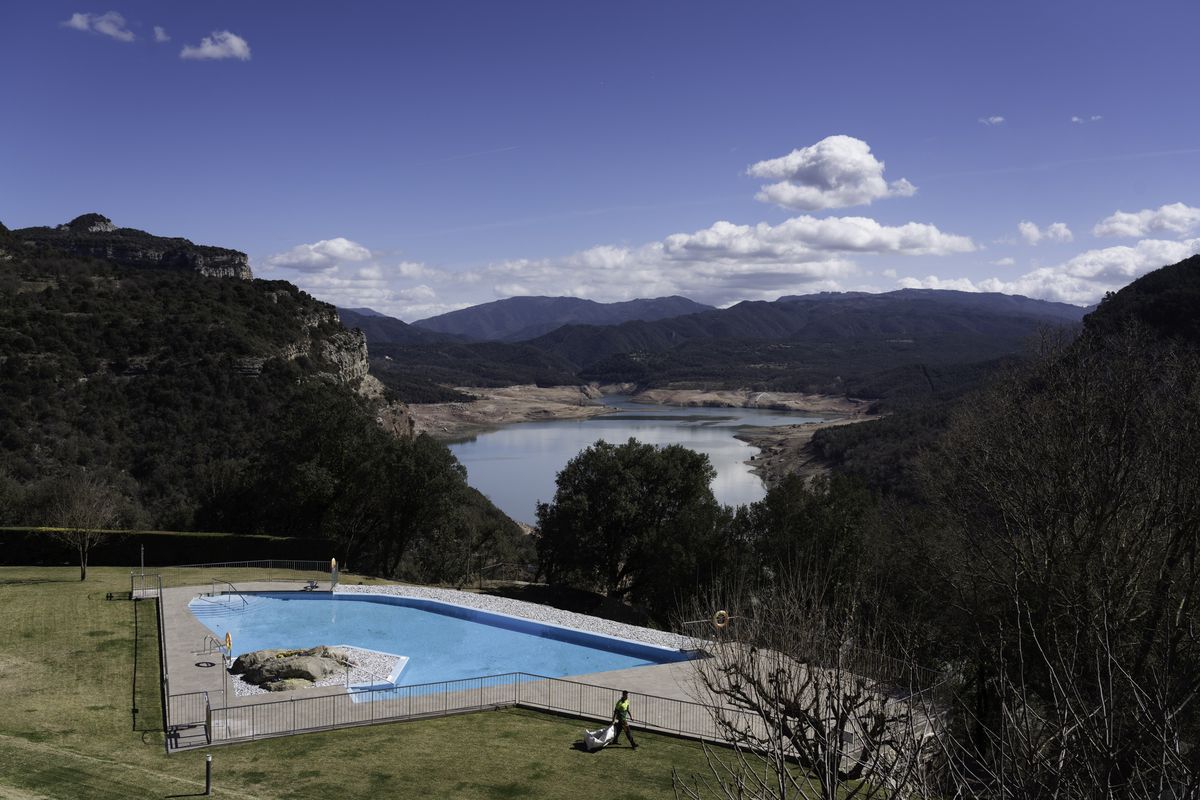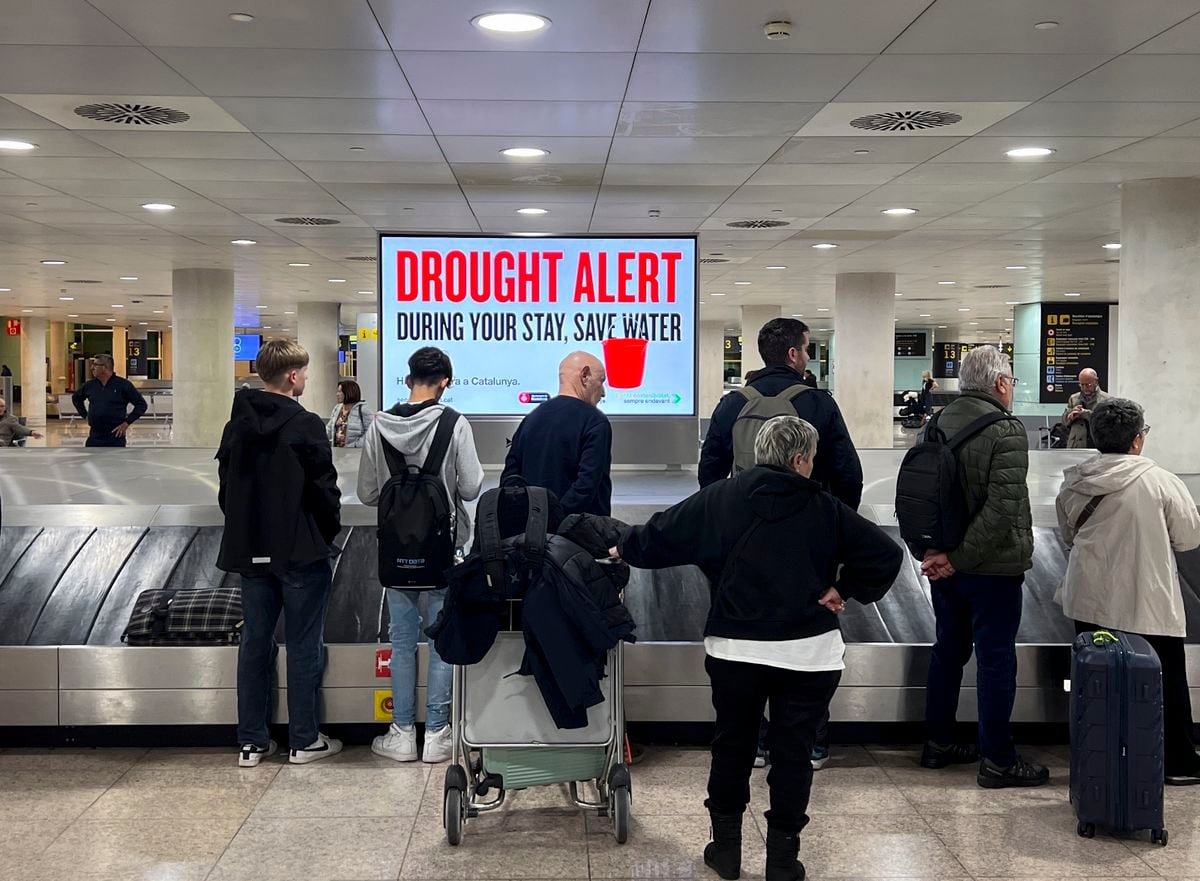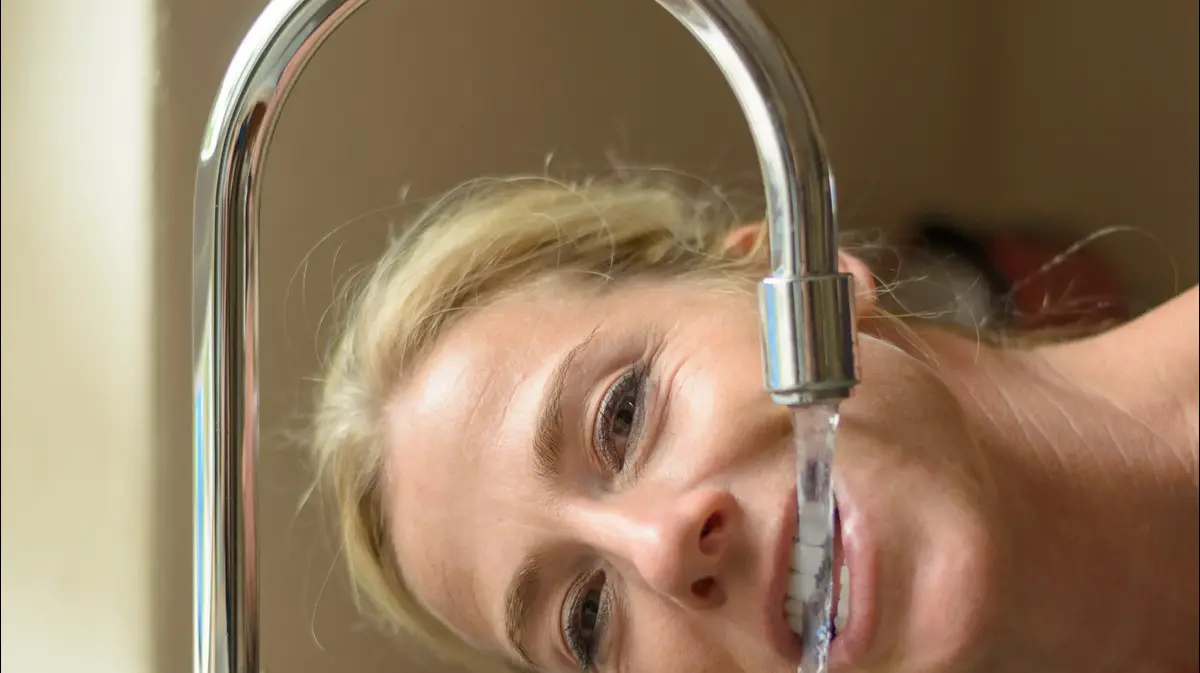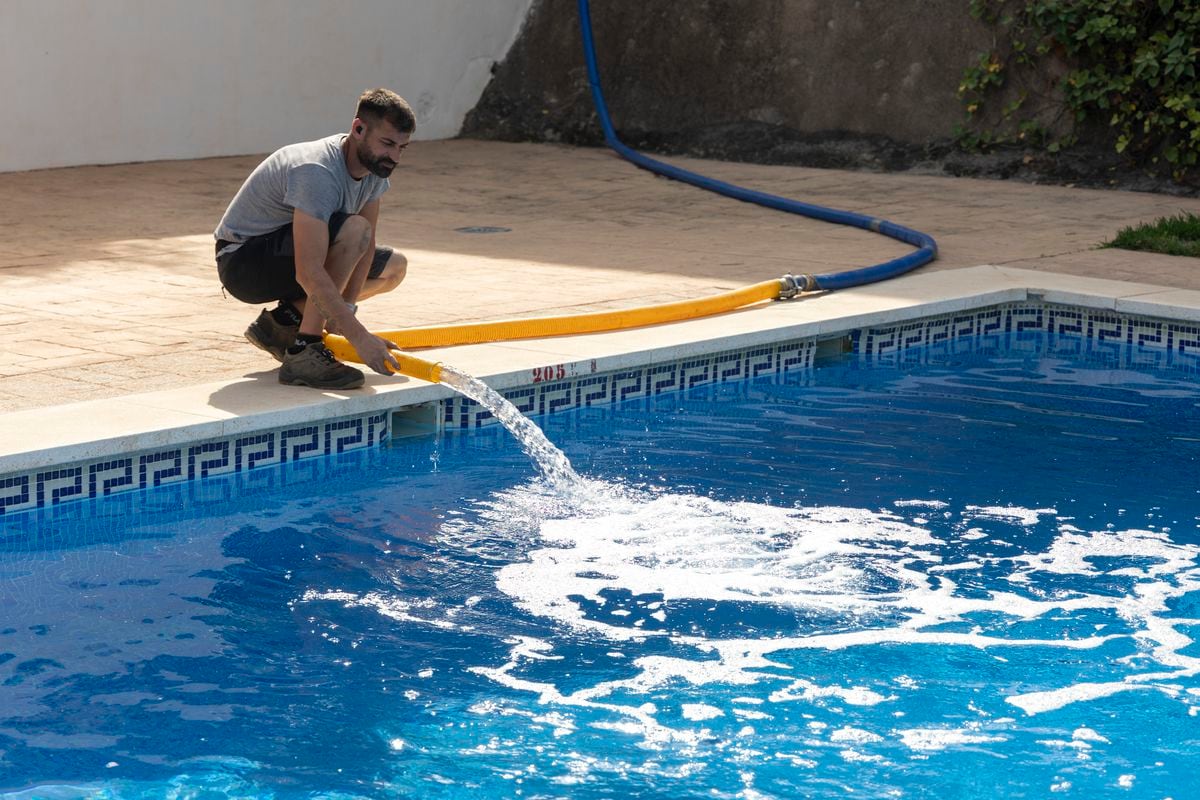A red screen warns at the entrance to Sant Feliu de Guíxols, in the heart of the Costa Brava: “Exceptional situation, Drought.
Check the municipal website.
They have been irrigating with groundwater for a long time.
The streets of neighboring Palafrugell are also cleaned with groundwater and the showers on its beaches will have no water.
A little further south, in Palamós, it is only swept directly.
Blanes, which will not have showers either, closed the ornamental fountains months ago.
These towns are part of the ten municipalities on the Girona coast that are already in an exceptional situation due to drought decreed in the Ter-Llobregat river system, whose reservoirs are at levels never seen since the great drought of 2008 (27% ).
The Girona coast, one of the most sought-after destinations for national tourism, is facing the start of a season that is multiplying its populations with the worst drought in living memory.
Throughout the Costa Brava, they will jump from around 265,000 inhabitants to more than 1.2 million in August.
"It is one of the areas with a more difficult situation," say sources from the Catalan Water Agency (ACA), the body that manages the community's water resources.
Its municipalities are taking measures to alleviate the lack of water with an increase in agricultural, industrial and domestic restrictions before an Easter with record reserves at the national level.
Some coastal towns multiply by 11, such as Pals (2,600 inhabitants), and others, such as Lloret de Mar, go from 42,000 to 140,000 residents.
Lloret is the fifth sun and beach destination in Spain in number of hotel beds and the second in Catalonia.
For years, they have carried out awareness campaigns for visitors and use reclaimed water from the treatment plant and from the subsoil.
In Castell-Platja d'Aro and s'Agaró, where they go from 12,900 to 120,000 inhabitants in summer, actions such as tanker trucks or a desalination plant are already being considered at Easter, resources that could be maintained until after the summer.
The Consorci d'Aigües Costa Brava Girona will make free this year the collection of reclaimed water through cisterns for uses where it does not have to be potable.
A French family from Toulouse, who spends four days in Roses (Girona), cools off in a fountain on the seafront, in May 2022. ©Toni Ferragut (EL PAÍS)
In the case of Port de la Selva, although they are on "alert", the previous phase, the situation is serious because "it is already endemic".
It is provided with its own aquifer which, due to the drought, has become salty and they have maintained water saving measures since last year.
As the promised connection to the Boadella reservoir has not yet been made, they will hire a desalination plant for the second consecutive year to guarantee drinking water for the 1,000 residents, who in August exceeded 10,000.
"We live off the people who come to us, but we have to see that as little water as possible is used," says its mayor, Josep Maria Cervera.
He assures that "those who have their garden as an Eden" are already controlled.
The consistories warn that they know who the big consumers are and that, in case of recidivism, they will sanction them.
In Begur, the sanctions range from 750 euros, the light ones, to 3,000 the serious ones.
Bearing in mind that these fines may not affect the pockets of these large consumers too much, which have been detected at dawn, between 3:00 and 5:00, other possible measures are lowering the flow with limiting devices, cutting off the supply for a few hours or the final closure.
Heaven does not seem willing to help improve the situation.
The forecasts of the State Meteorological Agency are discouraging in terms of rain at Easter in Catalonia.
Although it cannot be ruled out that precipitation could be widespread on Friday March 31 or Saturday April 1, very little is expected in the east.
And the week of April 3 and 10 does not seem to be rainy, neither in Catalonia nor in most of the Peninsula.
In the longer term, the seasonal forecast for the whole of spring suggests that rainfall could be below average on the Mediterranean slope.
So far this hydrological year, which began on October 1, 2022 and is about to reach its halfway point, the water collected in the eastern provinces of Catalonia does not even reach half of the normal amount.
That tourists spend half the water in 2040
"Tourism cannot plunder water," said ACA director Samuel Reyes at an event for World Water Day held last Tuesday.
Two days later, the
president,
Pere Aragonès, signed a
National Commitment for responsible tourism
together with a hundred entities such as Barcelona City Council, Foment de Treball or the Barcelona Hotel Guild.
The document proposes to renew the Catalan tourism model, which contributes around 13% of the community GDP, to face climate change.
It includes measures such as reducing 40% of CO2 emissions from cruise ships or limiting access with combustion cars to municipalities with a high presence of visitors.
To implement them, the Government undertakes to redirect part of the annual income from the tourist tax to support companies in the sector to use green energy facilities and to be more efficient.
66% of hotel establishments believe that tourists consume more water than residents, according to a survey commissioned by
Life Wat'savereuse
.
This European Union project operates in Catalonia, the Balearic Islands and the south of France to raise awareness among tourists, administrations and companies in the sector in order to reduce water consumption in hotels by 20% and increase water use by 9% regenerated.
In that same survey, half of the premises were willing to install more efficient technologies, such as water separation, but only 6% implemented it.
Xavier Bernard-Sans, one of the people in charge of the project, points out that there are already "success stories" in several Catalan hotels, but that there is still a long way to go before it becomes general in the sector.
You can follow EL PAÍS Catalunya on
and
, or sign up here to receive
our weekly newsletter
Subscribe to continue reading
Read without limits
Keep reading
I'm already a subscriber


/cloudfront-eu-central-1.images.arcpublishing.com/prisa/EZY3USHL75GFHJUQVOYWVDGKPM.jpg)
/cloudfront-eu-central-1.images.arcpublishing.com/prisa/D6S7A46G4BGF3CAL5DF5CX7J4U.jpg)


/cloudfront-eu-central-1.images.arcpublishing.com/prisa/R65LZW6EVZDNDFZPK25RWRQTVY.jpg)


